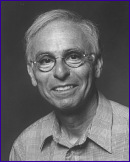ARCHIVED BLOGS
-------------------------------------------------------------------------------------------------------------------------------------
ROBARTS RESEARCH SCIENTISTS MAKE A DIFFERENCE
"To strive.. To seek.. To find." These prophetic words of wisdom by Tennyson are inscribed on the corner stone of the Robarts Research Institute. Linda Quatrin, Director of Communications, graciously allowed me to share in the passion for medical discovery. The program is unique in that it is independent and not government funded.
Believe it or not, London is "home to some of the countryís best researchers focussing on understanding and better treating diseases of the cardiovascular, immune and nervous systems."
Six hundred dedicated research workers have chosen to locate in the Forest City. These devoted professionals, working and training at Robarts, come from many different countries from around the world. There are 42 scientists along with graduate students, medical doctors, laboratory technologists that focus on a collaborative research model.
Biologists, biochemists, physicians, imaging specialists can share their expertise under the same mantle of co-operation and congeniality.
And this is helping reverse the "brain drain." Since 1995, twelve former Canadian researchers have returned from the United States and Great Britain.
Linda offered a glimpse of just a few of the many people whose work makes a difference: Dr Melissa Carpenter hails from California and is involved in Stem Cell research.
Dr Lynne Weaver specializes in the rescue and repair of spinal chord injury. Rick Hansen and Christopher Reed who are confined to wheel chairs yearn for the day that Lynne and Lindaís research efforts come to fruition.
Dr Ravi Menon, has established a leading international laboratory for functional MRI for studying epilepsy, stroke and schizophrenia .
Dr Rob Hegele is a Geneticist/Medical Doctor is exploring the family relationships related to Type 2 Diabetes. He is tracking the early signs of the disease trying to be proactive with his patients to try and prevent the ravages of diabetes.
All would agree that fresh ideas often come from bright young students and scientists who are willing to be creative and innovative. Medical research has to have a sense of risk with a letís try it philosophy to bring about change.
The results of the good research at the centre is huge: Image guided, computer surgery for neurology and cardiac operations now provides for minimally- invasive procedures.
Eighteen years of research has gone into stroke damage, epilepsy, schizophrenia , heart disease, stem cell and transplant exploration.
Dr Michael Strong, Interim Scientific Director, is absolutely passionate about creating a climate of scientific research in London second to none in the world.
The dedication of Robartsí staff literally touch the lives of thousands of individuals daily. Their goal is to ensure that early diagnosis, treatment and disease prevention will be available for all mankind.
"Terra Ahrens struggled for months with complications following surgery related to a congenital heart condition. She takes nothing in life for granted these days, particularly the benefits of medical research. Research is an investment with a personal high rate of return, especially at Robarts.. New ideas and discoveries have given me my life back."
Londoners should feel proud that the legacy of Drs Henry Barnett, Charles Drake, Cal Stiller and Mark Pozansky and their talented students that continues to make a difference in the lives of so many patients in need of help.
We owe a sincere thank you for all the dedication and hard work over the past two decades to all of the Robartsí staff.
Len Lesser

